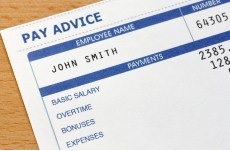This was originally posted on Unite's Croke Park Report blog today.
Let’s take a step back from the details in order to see what is happening in the wider economy – which has now fallen back into a double-dip recession according to the CSO report today. The real game plan is to suppress wages in order to boost profits.
This strategy was first announced Budget 2009 under the Fianna Fail-led government which claimed there was no alternative to wage reduction. The current Government has maintained that strategy. We have seen a restructuring of Joint Labour Committees which has removed much of the protection accorded to low-paid workers in sectors such as retail, restaurants and hotels. And we know what the Government wants in the current Croke Park 2 proposals.
Further, the Minister for Finance has called for cuts of 6 to 10 percent in the banking sector, even though the Mercer Report showed that over 40 percent of all staff in the three covered banks (Bank of Ireland, AIB and PTSB) has an average wage of €30,000.
Profits, meanwhile, have been on the increase. In 2010 and 2011 combined profits rose by 11 percent. If we take a longer view – and compare wage and profit growth projections with the Eurozone average – this is what we find, courtesy of the EU Commission’s AMECO database.

There are two things of note in this:
First, Irish profit growth greatly exceeds that of average Irish wage growth. Irish wages per employee in 2014 is projected to be below what they were in 2008; Irish profits on the other hand will have grown by 30 percent. In the Eurozone wages and profits is projected to grow in tandem.
Second, Irish profits are growing at a faster rate than the Eurozone average while Irish wages are lagging far behind.
Like this:
Like Loading...
Read Post →




















